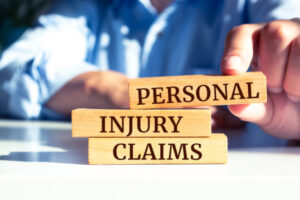Featured Article

As our loved ones age, we naturally want them to live comfortably and with dignity. Unfortunately, elder abuse is a hidden epidemic that can rob seniors of their security and well-being. Here at the Law Office of David M. Kennedy, we understand the devastating impact of elder abuse and are committed to protecting our most vulnerable citizens.
This blog aims to empower you with knowledge by exploring the different types of elder abuse and the warning signs to watch out for. Early detection is crucial in stopping the abuse and ensuring your loved one’s safety.
What is Elder Abuse?
Elder abuse is defined as any intentional or negligent act or omission that causes harm to an older adult. It can take many forms, including:
- Physical Abuse: Hitting, shoving, kicking, or inflicting any injury.
- Emotional/Psychological Abuse: Yelling, threats, humiliation, isolation, or controlling behavior.
- Sexual Abuse: Any unwanted sexual contact or behavior.
- Financial Abuse: Misusing or stealing money or assets.
- Neglect: Withholding food, water, medication, nursing or medical care.
- Abandonment: Deserting an elder and leaving them without the means to care for themselves.
Who Can Be an Abuser?
Contrary to popular belief, elder abusers are not always strangers. In fact, most abusers are trusted family members, friends, or caregivers. This can make it difficult for victims to speak up for themselves, fearing judgment or retaliation. Obviously, there are also many who do not have the mental or physical ability to assess their peril and report the same.
Warning Signs of Elder Abuse
The signs of elder abuse can be subtle and vary depending on the type of abuse. However, here are some red flags to watch out for:
- Physical Signs: Unexplained bruises, burns, cuts, broken bones, poor hygiene, dehydration, malnourishment, bedsores, or over/under-medication.
- Behavioral Changes: Depression, anxiety, withdrawal from social activities, fearfulness, confusion, or unusual behavior.
- Financial Changes: Missing money or valuables, unpaid bills despite adequate resources, unauthorized changes in wills or financial documents, suspicious banking activity.
- Changes in Care: A sudden change in caregiver, the caregiver refusing visitors to see the elder alone, a lack of medical aids (glasses, hearing aids), or the elder appearing unkempt despite a caregiver’s presence.
What to Do If You Suspect Elder Abuse
If you suspect an elder you know is being abused, it’s important to take action. Here are some steps you can follow:
- Talk to the Elder: Do so in a private, safe space and express your concern. Listen without judgment and validate their feelings.
- Gather Evidence: Document any injuries, unusual financial activity, or suspicious behavior. Take pictures if possible.
- Report the Abuse: Contact Adult Protective Services (APS) or your local law enforcement agency. You can also call the National Elder Abuse Hotline at 1-800-677-1116, and if you are in Texas you can call the HHS hotline – by name or anonymously – at 800/458-9858. At that point, HHS may send out an investigator from Austin or Arlington to do a thorough investigation.
- Seek Legal Help: An attorney specializing in elder abuse can advise you on your legal options and help protect your loved one’s rights.
The Law Office of David M. Kennedy Can Help
At the Law Office of David M. Kennedy, we are committed to holding elder abusers accountable and seeking justice for victims. Since 1991, the vast number of cases we have investigated and handled have involved elder abuse. We understand the sensitive nature of these cases and provide our clients with compassionate and dedicated representation.
If you suspect an elder you know is being abused, don’t hesitate to contact us for a free consultation. We can help you navigate the legal process and ensure your loved one receives the care and protection they deserve.
Remember: You are not alone. Elder abuse is a serious crime, and there are resources available to help. By recognizing the signs and taking action, you can make a difference in the life of an elder loved one.
Additional Resources:
- National Center on Elder Abuse https://ncea.acl.gov/home
- National Adult Protective Services Association https://www.napsa-now.org/contact/
- The National Elder Abuse Hotline: 800/677-1116
- Texas HHS Hotline: 800/458-9858
Disclaimer: This blog post is for informational purposes only and does not constitute legal advice. Please consult with an attorney to discuss your specific situation. Contact our law office today at (903) 819-0720 or click here to schedule your consultation.




